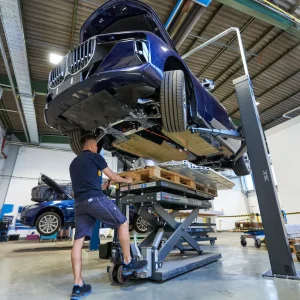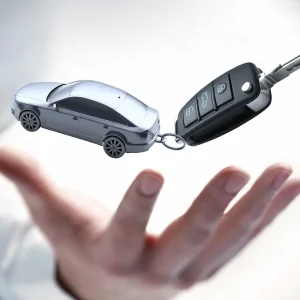Vauxhall has repackaged the Corsa to cut whole-life costs and make the
model more competitive against fleet supermini rivals.
According to Paul Adler, the firm’s fleet marketing manager, the UK team has reverse-engineered the new Corsa line-up with specific whole-life cost figures in mind, focusing particularly on improving residual values. Adler tells BusinessCar that as a result Vauxhall has seen a £1000 RV increase for the car according to figures from Cap, edging it closer to the Ford Fiesta.
The company engaged with residual value setters early to improve the Corsa’s RV position, which meant upgrades to the interior, ride, handling and specification, and the simplification of the trim and engine line-up, which has been reduced by nearly 50% from the current 172 possible configurations.
Adler adds that he wants the Corsa to come out on top on costs when fleets are comparing the car against the Fiesta, Volkswagen Polo, Peugeot 208 and Renault Clio.
Although the new model is based on the current Corsa and the length is near-identical, Vauxhall claims almost every other element of its design and engineering has changed, with all-new body panels and greater differentiation between the ‘sporty’ look of the three-door and the ‘premium’ five-door models.
The new Corsa’s trim line-up consists of Life, which replaces S, Sting, Design, Excite, SE, SRi, Limited Edition, SRi VX Line and VXR. The Design, SE, SRi and SRi VX Line have all been set up to cater specifically for company car drivers in terms of equipment. Prices have been cut by £90 to start at £10,900 on the Design, by £2090 to £11,595 on the SRi, by £1850 to £12,240 on the SE, and by £2625 to £12,630 on the SRi VX Line. Order books are already open and the first cars will be delivered at the start of January.
Vauxhall says a 20% taxpayer with a five-door 95hp 1.3 CDTi Corsa SRi will save £190 per year on BIK against a five-door 92hp 1.6 e-HDI Peugeot 208 Style, and £129 versus a five-door 75hp 1.4 TDI VW Polo SE Design. It also saves £90 over a five-door 95hp 1.6 Ford Fiesta Zetec Econetic.
Adler says reducing the Corsa’s exposure to short-cycle business was a key strategy for the brand.
“We have been controlling and restricting our short-cycle business to a much more considered level. It’s been a cultural change at Vauxhall over the last three years,” he says.
“We really tried to take a holistic view on whole-life costs on the Corsa and we expect to sell a higher mix of SE and SRi trims as a result of the changes we have made to specification.”
Vauxhall’s UK fleet volumes have actually receded slightly, from 91,269 units to 90,233 units year-to-date in a growing market as a result of moving away from daily rental business, but Adler is convinced the benefits are now starting to come through, with stronger RVs.
Vauxhall concedes that it will not be able to lead the market, one that is dominated by the Fiesta, but expects to maintain 85,000 units in the UK in a year across fleet and retail, pushing towards 90,000. Ford registered 121,929 Fiestas last year, making it the best-selling car in the UK.
Vauxhall has also taken the decision to remove a built-in factory-fit satnav system for the Corsa, instead opting for a £50 BringGo app on its Intellilink infotainment system which works through a link to the driver’s smartphone.
The idea behind having an app-based satnav is that it is easier to keep up-to-date, and a lot less expensive than a factory-fit unit, which means fleets are more likely to consider it on a supermini segment car. The Corsa will also include the Adam city car’s Siri eyes-free voice-control technology, which is compatible with Apple iPhones.
The 1.3-litre diesel engine in 75hp and 90hp power guises – the former has emissions of 85g/km – are expected to take the majority of new Corsa fleet volume, but Vauxhall is also pushing its new three-cylinder 1.0-litre turbo to company car drivers that do lower mileages. The small petrol is available with a CO2 output of 104g/km.
Adler says: “Where the numbers stack up for drivers doing a certain mileage we will be recommending the 1.0-litre turbo.”
Adler admits there will need to be further education for some fleets to consider petrol, beyond the figures stacking up in a table, but fleet drivers will catch on to the benefits of a lower-capacity petrol.
He says: “Downsizing is the way forward but it will take some time for the industry to follow. Once the used car market comes to terms with smaller-capacity petrols, I think we will start to see the balance between diesel and petrol shift even more.”





